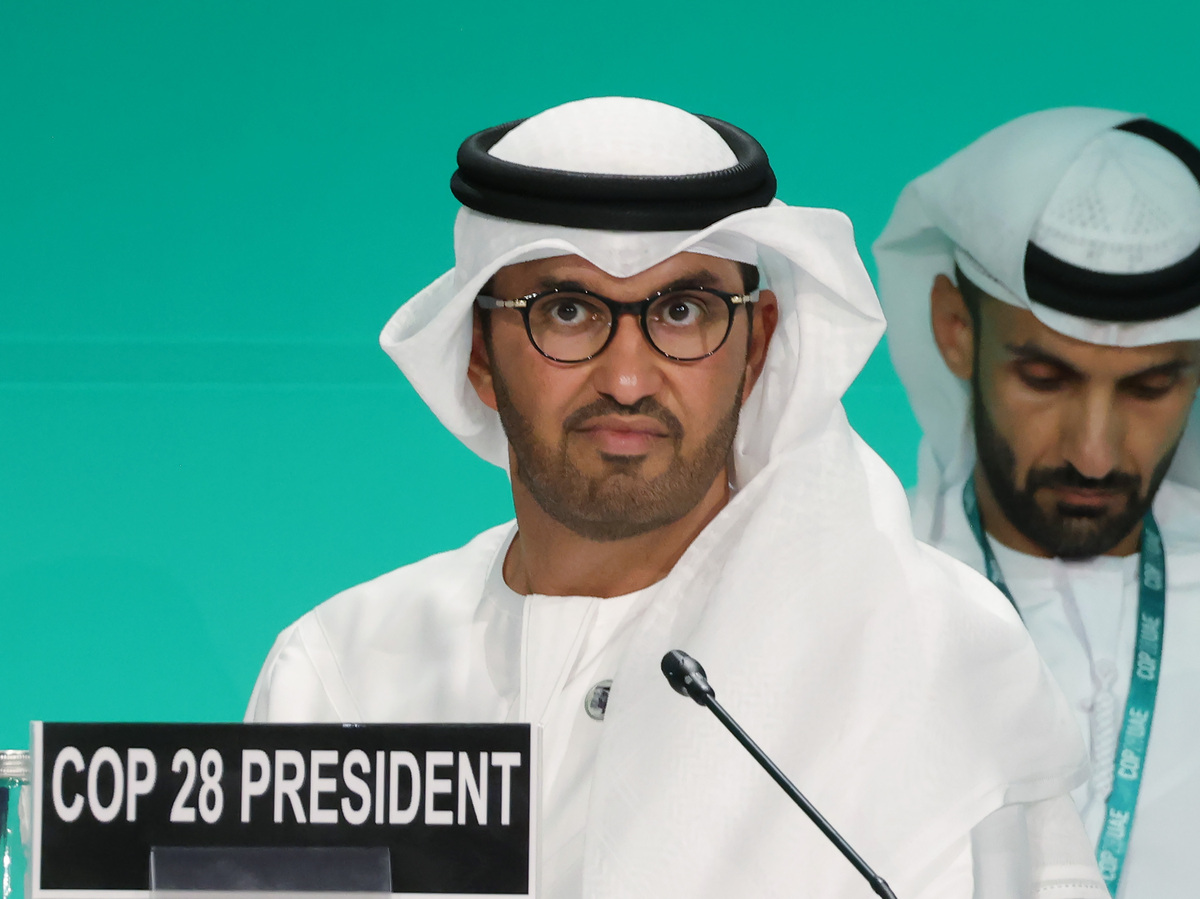
COP28 President Sultan Ahmed al-Jaber attends the opening session of the climate conference. Sean Gallup/Getty Images hide caption

COP28 President Sultan Ahmed al-Jaber attends the opening session of the climate conference.
Sean Gallup/Getty ImagesEvery year world leaders gather at the Conference of the Parties, or COP, to devise solutions to what amounts to a growing existential crisis for humankind: our rapidly heating planet.
The United Arab Emirates is hosting COP28 this year. The goal of the conference is to decrease emissions and protect the planet. But leading the climate talks is the head of one of the biggest oil companies in the world, in a nation that derives much of its wealth from oil. Are the goals of this meeting truly in sync with the goals of the hosts?
NPR's Miles Parks speaks with NPR international correspondent Aya Batrawy from COP28.
Email us at
This episode was produced by Mia Venkat and edited by Courtney Dorning, Neela Banerjee and Rachel Waldholz. Our executive producer is Sami Yenigun.

 Live Radio
Live Radio